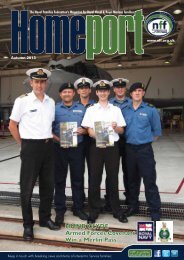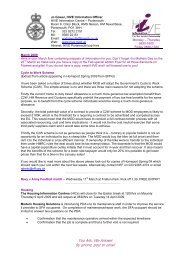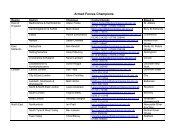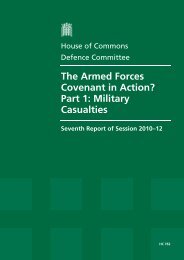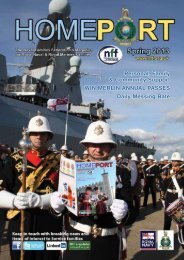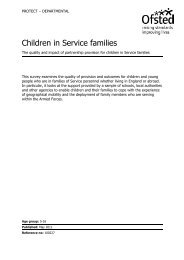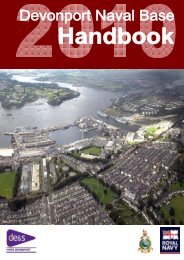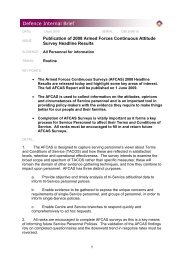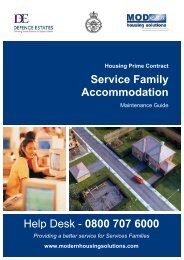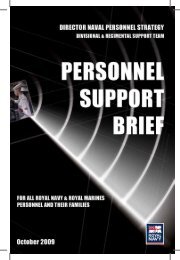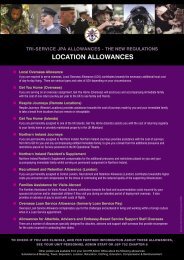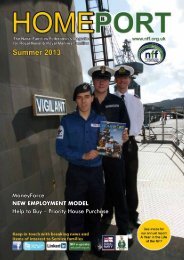Information - NFF
Information - NFF
Information - NFF
Create successful ePaper yourself
Turn your PDF publications into a flip-book with our unique Google optimized e-Paper software.
Your Money<br />
Money Saving Ideas<br />
by Liz Dunscombe, Credit Action<br />
We’re all feeling the pinch financially at the moment and, whilst we might feel that we’re victims of global trends<br />
or government policy, there are things we can do to make the most of what money we do have in our pockets.<br />
In July 2011 it cost on average £68.05 to fill a<br />
car with a 50 litre tank with unleaded petrol.<br />
Over a quarter of us say we’re cutting back on<br />
our car usage and this makes sense. Could you<br />
share transport to work or taking the children<br />
to school/clubs – or better still get the children<br />
walking. Plan journeys so that you achieve as<br />
many tasks as possible – a round trip to multiple<br />
venues will probably be cheaper than home and<br />
back to each one individually.<br />
Food shopping takes up about 25% of the net<br />
disposable income of the average family and is<br />
probably the most flexible part of any budget.<br />
Large supermarkets are good for allowing us to<br />
do all our shopping under one roof, however<br />
they also tempt us with lots of ‘bargains’<br />
that we don’t actually need. The key to not<br />
spending more than necessary is to write a<br />
clear list of what you require and then to stick<br />
to it. Shopping for six days and then eating up<br />
all the leftovers on the 7th day can work well<br />
– as can making sure that you’re not hungry<br />
when you shop!<br />
It is also much cheaper to buy basic ingredients<br />
and cook a meal from scratch than it is to use<br />
pre-prepared items. If you have a freezer then<br />
cook double or even treble quantities when you<br />
are able and freeze in appropriate size portions<br />
for your household – then you’ll have ‘ready’<br />
meals when you need them. Take advantage<br />
of special offers (research current ones<br />
online and plan your menus<br />
around them), but<br />
don’t buy more than<br />
you’ll really use of<br />
something just because<br />
it’s cheap – you’ll end up<br />
throwing it away.<br />
The UK base rate has been at a 315 year low of<br />
0.5% since March 2009, however the average<br />
interest rate for credit cards is now 18.7% – this<br />
compares with average credit card rate of 16.6%<br />
in July 2007 (when base rate was 5.75%). So<br />
although it might be a challenge, one very good<br />
way to save money is to clear as much credit card<br />
debt as possible thereby saving yourself significant<br />
amounts of interest.<br />
The most effective way to clear debt is to create a<br />
realistic and sustainable budget for your household<br />
– costing out your necessary expenditure will help<br />
you to evaluate what you have available to repay<br />
debts. Visit www.budgetbuilder.creditaction.<br />
org.uk for an online tool to help you create such<br />
a budget. If you can’t get your budget to balance,<br />
then contact the Consumer Credit Counselling<br />
Service on 0800 138 1111 or www.cccs.co.uk.<br />
A survey has found that being sensible with money<br />
is the number one principle that parents want<br />
to pass onto their children. Personal financial<br />
education has no standard place in our schools<br />
so most teenagers are dependent on what the<br />
adults around them pass on. However children are<br />
not always terribly receptive to parental wisdom,<br />
particularly in their latter teens! Credit Action is<br />
able to give a presentation on handling money,<br />
free of charge, to any sixth form in the UK apart<br />
from in Scotland. In certain areas<br />
we are able to deliver to the 11-16<br />
age group. So if your teenagers are challenging<br />
your advice, why not ask their school to invite us<br />
in (e-mail office@creditaction.org.uk or telephone<br />
0207 380 3390).<br />
In a study two groups of people were sent out<br />
to buy a camera, one had to use cash the other<br />
a credit card. The cash purchasers spent on<br />
average £29.58, the card purchasers £52.67!<br />
Another study showed that over a three month<br />
period those that shopped with cash spent 20<br />
-30% less than those who used a debit or credit<br />
card. So you might want to consider trying to<br />
live with cash only for a while – but do make<br />
sure you’re keeping a record of what you are<br />
spending the money on and monitoring it against<br />
your budget.<br />
We might not be<br />
able to control<br />
the economic<br />
storm, but by<br />
taking positive<br />
action regarding<br />
our own<br />
finances, we can<br />
affect how well we<br />
ride it out!<br />
Editor’s Note:<br />
When driving, remember<br />
another way to save money is<br />
to reduce your speed, therefore<br />
driving more economically. Dropping<br />
your speed does not actually add<br />
much time to your journey, but the<br />
difference in your fuel bill will be<br />
noticeable!<br />
One of the newer<br />
arrivals in terms<br />
of obtaining discount<br />
on products is ‘voucher code’<br />
websites. The codes, if used very<br />
carefully, can save you money, however<br />
all too often you end up falling foul of some<br />
small print condition, not getting the discount<br />
but purchasing the item anyway. Also something<br />
is only a bargain if you would have bought it (or<br />
something very similar) anyway – otherwise it is<br />
an extravagance that you probably can’t afford.<br />
HOMEPORT AUTUMN 2011 35



